Interculturalism is a political movement that supports cross-cultural dialogue and challenging self-segregation tendencies within cultures. Interculturalism involves moving beyond mere passive acceptance of multiple cultures existing in a society and instead promotes dialogue and interaction between cultures. Interculturalism is often used to describe the set of relations between indigenous and western ideals, grounded in values of mutual respect.
Native American studies is an interdisciplinary academic field that examines the history, culture, politics, issues, spirituality, sociology and contemporary experience of Native peoples in North America, or, taking a hemispheric approach, the Americas. Increasingly, debate has focused on the differences rather than the similarities between other Ethnic studies disciplines such as African American studies, Asian American Studies, and Latino/a Studies.
Indigenous decolonization describes ongoing theoretical and political processes whose goal is to contest and reframe narratives about indigenous community histories and the effects of colonial expansion, cultural assimilation, exploitative Western research, and often though not inherent, genocide. Indigenous people engaged in decolonization work adopt a critical stance towards western-centric research practices and discourse and seek to reposition knowledge within indigenous cultural practices.

Kura kaupapa Māori are Māori-language immersion schools in New Zealand, where the philosophy and practice reflect Māori cultural values with the aim of revitalising Māori language, knowledge and culture. Kura kaupapa Māori are established under the Education Act (1989). The term kaupapa Māori is used by Māori to mean any particular plan of action created by Māori to express Māori aspirations, values and principles.

Feminism in New Zealand is a series of actions and a philosophy to advance rights for women in New Zealand. This can be seen to have taken place through parliament and legislation, and also by actions and role modelling by significant women and groups of people throughout New Zealand's history. The women's suffrage movement in New Zealand succeeded in 1893 when New Zealand became the first nation where all women were awarded the right to vote. New Zealand was also the first country in the world in which the five highest offices of power were held by women, which occurred between March 2005 and August 2006, with Queen Elizabeth II, Governor-General Silvia Cartwright, Prime Minister Helen Clark, Speaker of the New Zealand House of Representatives Margaret Wilson and Chief Justice Sian Elias.
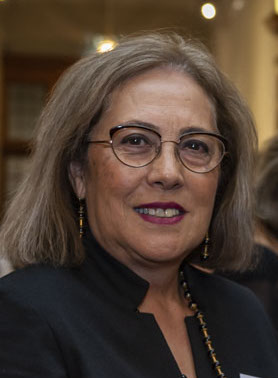
Linda Tuhiwai Te Rina Smith, previously a professor of indigenous education at the University of Waikato in Hamilton, New Zealand, is now Distinguished Professor at Te Whare Wānanga o Awanuiārangi. The daughter of Sidney Moko Mead, she affiliates to the Ngāti Awa and Ngāti Porou iwi.

Settler colonialism is a type of colonialism in which foreign settlers move to and permanently reside on land already inhabited by Indigenous residents. Settler colonialism causes the replacement or reduction of existing peoples and cultures; some, but not all, scholars describe the process as inherently genocidal. It may be enacted by a variety of means, ranging from violent depopulation of the previous inhabitants to less deadly means, such as assimilation or recognition of Indigenous identity within a colonial framework.
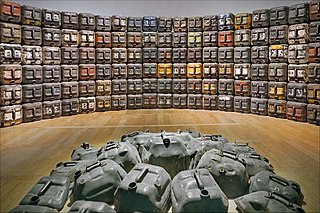
Decoloniality is a school of thought that aims to delink from Eurocentric knowledge hierarchies and ways of being in the world in order to enable other forms of existence on Earth. It critiques the perceived universality of Western knowledge and the superiority of Western culture, including the systems and institutions that reinforce these perceptions. Decolonial perspectives understand colonialism as the basis for the everyday function of capitalist modernity and imperialism. Decoloniality emerged as part of a South America movement examining the role of the European colonization of the Americas in establishing Eurocentric modernity/coloniality. Decolonial theory and practice have recently been subject to increasing critique. For example, Olúfẹ́mi Táíwò argued that it is analytically unsound, that "coloniality" is often conflated with "modernity", and that "decolonisation" becomes an impossible project of total emancipation. Jonatan Kurzwelly and Malin Wilckens, used the example of decolonisation of academic collections of human remains - which were collected during colonial times to support racist theories and give legitimacy to colonial oppression -, and showed how both contemporary scholarly methods and political practice perpetuate reified and essentialist notions of identities.

Graham Hingangaroa Smith is a New Zealand Māori academic and educationalist of Ngāti Porou, Ngāi Tahu, Ngāti Apa and Ngāti Kahungunu descent. He is a Fellow of the Royal Society Te Apārangi.
Leonie Eileen Pihama is a New Zealand Kaupapa Māori academic.
Elizabeth Mary Rata is a New Zealand academic who is a sociologist of education and a professor in the School of Critical Studies in Education at the University of Auckland. Her views and research on Māori education and the place of indigenous knowledge in the New Zealand education system have received criticism from other academics, as per the academic process.
J. Kēhaulani Kauanui is a Kanaka Maoli woman born and raised in California with ties to family in Anahola on the island of Kaua`i and throughout the islands. She is an author, editor, radio producer, educator, serves on advisory boards, and is one of six co-founders of the Native American and Indigenous Studies Association (NAISA). She was awarded a Fulbright (1994-1995) at the University of Auckland in New Zealand where she was affiliated with the Māori Studies department. Her research areas focus on indigeneity and race, settler colonialism, decolonization, anarchism, and gender and sexuality.
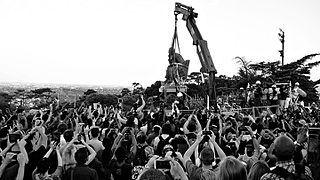
Decolonization of knowledge is a concept advanced in decolonial scholarship that critiques the perceived hegemony of Western knowledge systems. It seeks to construct and legitimize other knowledge systems by exploring alternative epistemologies, ontologies and methodologies. It is also an intellectual project that aims to "disinfect" academic activities that are believed to have little connection with the objective pursuit of knowledge and truth. The presumption is that if curricula, theories, and knowledge are colonized, it means they have been partly influenced by political, economic, social and cultural considerations. The decolonial knowledge perspective covers a wide variety of subjects including philosophy, science, history of science, and other fundamental categories in social science.
K. Wayne Yang is a professor and scholar of community organizing, critical pedagogy, and Indigenous and decolonizing studies. He is a professor of ethnic studies at the University of California, San Diego and Provost of John Muir College. He writes about decolonization and everyday epic organizing, often with his frequent collaborator, Eve Tuck. Currently, they are convening The Land Relationships Super Collective, editing the book series, Indigenous and Decolonizing Studies in Education, and editing the journal, Critical Ethnic Studies. He is interested in the complex role of cities in global affairs: cities as sites of settler colonialism, as stages for empire, as places of resettlement and gentrification, and as always-already on Indigenous lands.
Alice Te Punga Somerville is a poet, scholar and irredentist. Dr Te Punga Somerville is the author of Once were Pacific: Māori connections to Oceania which provides the first critical analysis of the disconnections and connections between 'Māori' and 'Pacific'. Her research work delves into texts by Māori, Pacific and Indigenous peoples that tell Indigenous stories in order to go beyond the constraints of the limited stories told about them. In 2023 she won New Zealand's top award for poetry, the Mary and Peter Biggs Award for Poetry, for her collection Always Italicise: How to Write While Colonised.
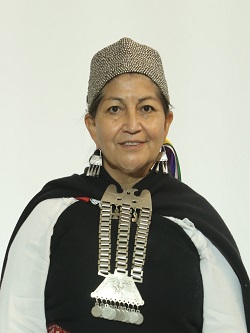
Elisa Loncón Antileo is a Mapuche linguist and indigenous rights activist in Chile. In 2021, Loncón was elected as one of the representatives of the Mapuche people for the Chilean Constitutional Convention. Following in the inauguration of the body, Loncón was elected President of the Constitutional Convention. This role, along with her academic career, has placed her at the center of public attention and controversy. In particular, her formal education became a subject of public scrutiny when the Council for Transparency (CPLT) demanded the release of her academic records, igniting a debate about the intersection of race, class, and public transparency in Chile.
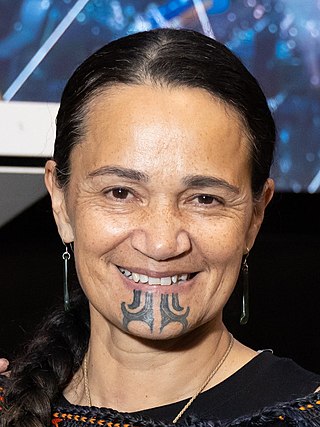
Waikaremoana Waitoki is a New Zealand clinical psychologist, academic, and former president of the New Zealand Psychological Society from 2020 until 2022. She is a senior lecturer at the University of Waikato, and focuses her research on indigenous psychology, Mātauranga Māori and cultural competency.
Jessica Hutchings is a New Zealand researcher, author, and Ashtanga Yoga teacher. Hutchings' work is grounded in kaupapa Māori research within the subject areas of environmental and Indigenous studies.
Ngā Pae o te Māramatanga (NPM) is New Zealand's Māori Centre of Research Excellence (CoRE). It was established in 2002 and is hosted by the University of Auckland with 21 research partners and is funded, like other CoRE's, by the Tertiary Education Commission. The mission was to conduct research for, with and by Māori communities which leads to transformation and positive change.










